#oaths
Text
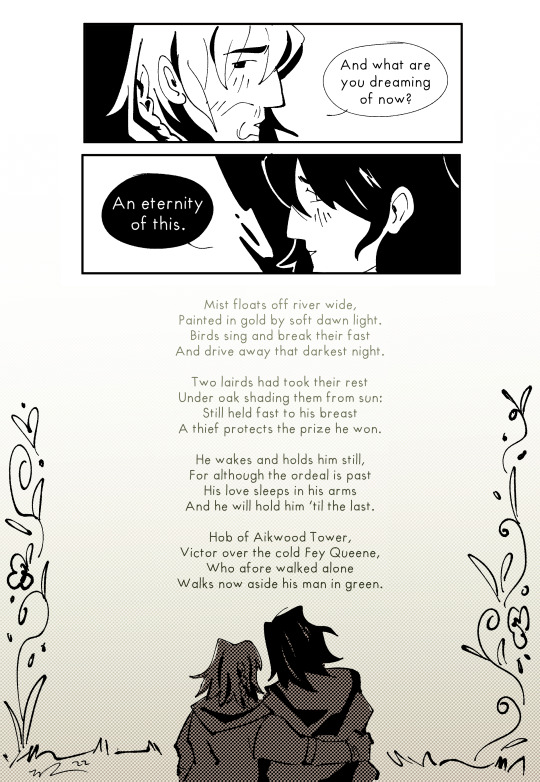
Oaths by @landwriter is done!!! go read it!!!
#my art#fishfingersandscarves#the sandman#the sandman netflix#dreamling#dream/hob#dream of the endless#dream (the sandman)#hob gadling#robert gadling#landwriter#fic rec#oaths#illustration#yes i literally drew this last year
563 notes
·
View notes
Note
Ok, for the WIP title ask game, would An Eternity of This happen to be the Oaths follow up? 👀
It would be!!
This snippet is the first thing that I wrote again after too many months with not enough writing. It's a scene with Thomas and Catte after Hob has gone out after Dream about the. V grateful to it for getting the gears going again, even though it doesn't quite fit in the rest of the coda. Pleased to have a reason to put it somewhere else, like riiiight here. ~1.1K of Oaths Coda under the cut:
When they were small, Catte had teased Hob for his lack of patience. When they were grown, she persisted in doing so, for he persisted in having none.
He took it in good humour, as was his character; just as it was hers to tease him in all the things she knew better about. It was a mercy that he had been born into a saddle and not to any other manner of work. Strong though he was, she suspected he would not be able to withstand waiting even for a dough to rise. Making a simple basket had nearly driven him to grief.
It was only now, that she felt the abashed stirrings of sympathy. Patience. She turned away from the window and sighed.
“By morrow, he told you,” she said, again.
“By morrow,” replied Thomas, again.
“How many times is that now? God’s blood. It’s not as if the answer is going to be different.”
“Four, I think,” he said dryly. “You’re beside yourself.”
Catte shook her head and scoffed. “So I am. Come and comfort your insensible wife, Thomas.”
He stood up from where he was sat by their hearth, and came to wrap his arms around her. Only she was insensible on the inside, and had to shut her eyes to resist the impulse to slide out of his embrace as soon as it caught her and go back to the window. Her husband was warm and solid and smelled of smoke and himself, and she could be still as him, even if she felt less like a woman and rather more like a flystruck horse in the fields, twitching and restive and nearly mad.
Thomas pressed a kiss to the crown of her head. “I’m not sure you can will yourself any calmer than this, hart. The others are surely drinking themselves blind tonight. If it wasn’t that your company was far better, I’d join them. You’ve more grace than us all.”
She smiled at the flattery and turned her face against his chest so she could half look out onto the dark moors. “I do have more practice.”
Thomas drew in a breath. “Is this what it’s like? Each time we ride out?”
Catte looked up. He met her eyes, and she thought of all the long winters, of waking before dawn and starting the day’s labours in the blue-grey light just for a reason to look to the horizon. Waiting for her Thomas before he was even hers, not wanting to put a name to the thing that already had her looking for him in the crowd of returning riders, dry-mouthed, no matter what they called each other.
She cupped his face and thumbed over his cheeks. Her husband now. Not that it made any kind of difference to how it felt, before or after, each and every time. But it was her work to carry the waiting, as riding was theirs. He should never have learned this feeling too. He’d recall it afresh when he rode out again and feel sorry twice over, for leaving and for knowing now how it felt to be left.
“Would you believe me if I say no?” she asked.
Thomas raised his eyebrows. “No. But I’d let you have it.”
“You shouldn’t let me have anything,” she said indignantly.
“Nay, you’d prefer to win it, love,” he said, hiding a smile, and she sighed. It was unjust that he knew her as well as she knew him. “You don’t need to explain. I just don’t know how you bear this.”
“It is like this. But it’s easier, too. Tonight is different.” When Thomas rode out, he was surrounded by good men, brothers and kin, some who she would grant were even as cunning or strong as her man. Hob had gone out with nobody, against a fell enemy they had never met before, not to chance suffering but to pay in it, and no way home but to withstand it all. It didn’t bear saying, so instead she said, “I have you with me. The bed won’t be cold.”
“You’re only trying to make me feel useful,” said Thomas. He pressed his face into hair. “Catte, I hate this,” he murmured.
“I know,” she said. “I hate it too.” Outside, rain gusted down, and they both fell silent, imagining Hob, outside and alone, making his way to Miles Cross.
“I’ll bank the fire,” said Thomas abruptly. Catte looked at the hearth and laughed. It had hours left in it. Thomas had been stoking it ceaselessly. It would take the whole bucket of cold ash.
“And I suppose then we’ll lie in bed and fall asleep,” she said.
He smiled crookedly. “Aye.”
But she did lie down in bed, and soon Thomas joined her, and pressed himself to her back like another bastle wall. Neither of them spoke. Catte had been surprised to discover how much she enjoyed the comfortable marital silence that came in sharing a bed, near as much as the very foremost activities of a marriage bed. Tonight, it hardly warmed her. Tonight, they were only silent because the remainder of their thoughts were too grim to speak aloud. They sounded awful enough inside her head.
Catte wanted to throw off the covers, shake all the fear off with it, but instead, she breathed slowly, and began to paint a picture behind her eyes. It was a childish habit, to soothe and distract. She hadn’t thought about it in years. Her eldest sister had told her to do it when Catte confessed she lost sleep for her nerves as soon her friends began to ride out. Think of someplace else. It doesn’t even need to be real, Effy had said solemnly. Name every detail of it, the smell and the sound and the feel, so you can go into it like another room.
A summer’s evening, she decided. A sky dark blue in the gloaming, the leavings of a perfect clear day. Sweet smelling air and a cool breeze in her hair. Dark enough for bats to be on wing in the field, light enough to point them out still, to her children, who were bonny and hale, and favoured her and Thomas both. But tonight they were indoors, sat at her feet on a yellow woven rug, listening wide-eyed to her fearful recounting of the Faerie Queen and the night their kinsman Hob Gadling won his love. Thomas comes inside, with more lines on his face and more handsome for it, and they pester him with questions, and he laughs—as he does, easily and often now, for here in this little room their future is plentiful and kind—and fetches Hob and his fey husband, both long since returned from the clutches of monstrous creatures, and then Thomas holds Catte in his arms the way he had since they were still half children themselves, and they all together listen to the only fairy story that was true, and ended happily.
WIP Title Ask Game
39 notes
·
View notes
Text
You know what I found interesting? Stormlight Archive is all about oaths BUT it never mentions (to my recollection) Lirin taking a Rosharan version of the Hippocratic oath. Maybe if the radiants didn’t only come around in times of war and they could be full time healers that sort of thing would exist?
20 notes
·
View notes
Text
I've been thinking a lot about oaths lately, due in large part to @thelordofgifs' wonderful The Fairest Stars and also my own wrangling with this in Atandil. And this has gotten me once again brainworming about Finrod's oath and why that oath, sworn by that specific character, with that specific relationship to the world around him mattered for the outcome of the whole First Age.
Buckle up and apologies in advance for the length of this, it's one of my absolute favorite topics.
So basically the overarching premise is this: the only Silmaril that is wrested from Morgoth without the Valar's direct intervention (and pivotally that Silmaril is the means by which their subsequent intervention is pleaded for and won) is only acquired because a second oath from the doomed House of Finwë is fulfilled that serves as a counter-balance to the first (and primary) Oath on which that doom hinges.
(Caveat before we move forward: we're talking about the Oaths here and how they and their resulting actions operate within the narrative. None of this is to imply that the sons of Fëanor, for example, do not operate from other motivations in tandem with their oath, or to claim that Finrod is always a representation of the Good. Like most of Tolkien's characters, these are all complex individuals who act outside of this as well.)
Some Oath Analysis
So. To dive in. Oaths by the House of Finwë basically drive the First Age of Middle-earth—and key to this, I believe, is the striking similarity between the structure of these two pivotal oaths and where they diverge within that structure. So let's look at these side by side:
They both move in three parts (color coded below for reference in the text):
1. the action the oath promises
2. the group it is promised to
3. the relation of the swearer to an associated object

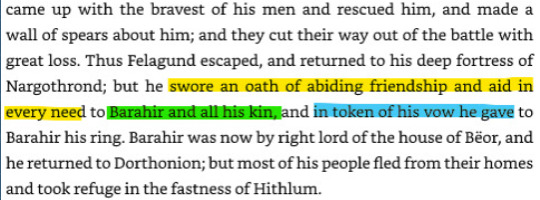
1. The Action the Oath Promises
Thus we can see that in Fëanor’s oath, the action promised is pursuit with vengeance and hatred, a pledge of destruction and revenge. While in Finrod’s oath, the action promised is “abiding friendship and aid in every need,” a pledge of love returned and in fact returned exponentially for what was given.
Both are promised actions that escalate far beyond the inciting event: a stolen possession repaid with pursuit to the ends of the earth, and a life once saved repaid with the promise of help in every need to a whole bloodline rather than a one-off return to pay the debt.
2. The Group it is Promised To
Also in both oaths, the group it is directed toward expands far beyond the inciting event to include people/generations who do not exist at the time of the swearing.
In the Oath of Fëanor, the subject moves out from Morgoth who stole the Silmarils to include literally any creature you can imagine who might exist throughout history and have the audacity to come into possession of a Silmaril—even if they merely found one. (Of course one can quibble over the technicalities of what exactly that means and how it is interpreted by the bearers of the Oath, but the way it plays out—especially at Sirion—I think speaks for how it escalated as time and desperation drew on.) This trail of wreckage ends up including entire kingdoms, repeated treachery, multiple kinslayings, and even, in what is arguably its darkest moment, children left to perish in the wilderness.
In Finrod’s oath, the recipient moves from Barahir to include any of Barahir's kin as well. It expands beyond a “you had my back, now I have yours” return to encompass any current and presumably future generations. Furthermore, it isn't aid in any need, it's aid in every need. An immortal being making a promise like that means Finrod was knowingly signing up to be potentially fulfilling this oath repeatedly for thousands of years to a shit ton of ever-multiplying Barahir-descendants—if it hadn’t claimed his life within the first generation.
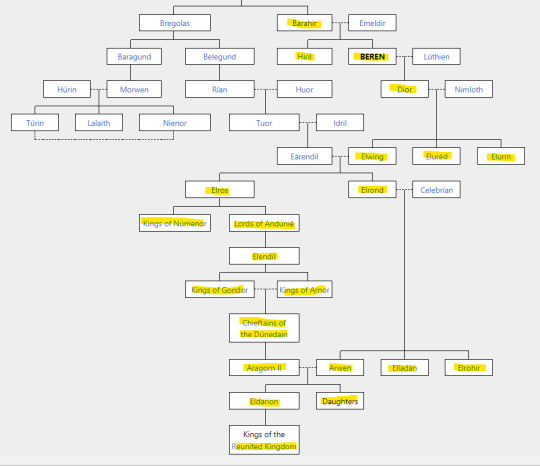
3. The Associated Object
And finally, you have the contrast between the relation of the swearer to an object involved in the oath:
In the Oath of Fëanor, it’s all about the swearers retaining (or regaining) possession of the valuable item(s) they consider central to their identity. If anyone else holds a Silmaril, it is a direct affront to their power, property, and birthright.
In Finrod’s, he instead takes the item that serves as a visible representation of his identity (the ring his father gave him that signifies his place in the family, his inherited position, and his father’s blessing—the badge of the house of Finarfin) and he gives it away to another.
So in effect, you have an oath of taking going up against an oath of giving and in some way they seem to at least temporarily cancel each other out. Or at any rate, the oath of giving holds the oath of taking at bay as it is being fulfilled, which allows the quest to succeed.
Possession vs Sacrifice
To me, this all comes down to the primary animating power behind each oath: possessive love vs sacrificial love.
Or, to put it another way, it hinges on each oath-swearer's relationship to power and how it's used—a theme we see time and time again in Tolkien's writing.
Fëanor and his sons (by their co-swearing of the Oath) are driven by a desire to be the sole possessors of the "unsullied light, and masters of the bliss and beauty of Arda.” This leads them even so far as to bring in racial supremacy as they add that "no other race shall oust us."
This, of course, is an outgrowth of the whisperings of Melkor regarding the coming of Men: that they would supplant the Firstborn Children of Ilúvatar and that the Valar were party to this disinheritance. And this sets them immediately in a posture of suspicion toward any new people(s) they encounter.

Whereas from the moment Finrod discovers the Edain, for example, "love for them stirred in his heart" and he works consistently as a mediator to establish peace and friendship between the various Elven peoples and Men, actions which undergird his oath and bond to Barahir.
Put more succinctly: the oath of Fëanor is undertaken in the pursuit of supremacy and the oath of Finrod is undertaken in the pursuit of relationship.
Both oaths ultimately lead to the swearers losing their realms, treasures, power, freedom, and ultimately their lives. But pivotally, those losses are the costs extracted by the oath of Fëanor while they are losses willingly relinquished by Finrod as he seeks to fulfil his.
This is especially of note as Finrod uses the symbol of his own inheritance as the mark of his oath. He gives his own birthright to the Edain and thus even his familial crest becomes known to history as "the ring of Barahir" rather than the ring of Felagund.
He therefore serves as the antithesis to the racial supremacy of Fëanor's words in Tirion and simultaneously as a model of what was intended for the Elves: to prepare the way for the Secondborn and pass the world on to them freely. Tolkien notes this aspect of the Elves in his letter to Milton Waldman where he discusses the connections between the Silmarillion and The Lord of the Rings:
“The doom of the Elves is to be immortal, to love the beauty of the world, to bring it to full flower with their gifts of delicacy and perfection, to last while it lasts, never leaving it even when ‘slain’, but returning – and yet, when the Followers come, to teach them, and make way for them, to ‘fade’ as the Followers grow and absorb the life from which both proceed.”
Letter 131 to Milton Waldman
Again it is that very Tolkienian contrast of taking up power to master something versus laying power down to preserve something. And that, far from being Finrod "swearing a foolish oath" or "throwing away his kingdom because of his pride," is once again that "fool's hope" upon which so much of the estel of Arda is built.
32 notes
·
View notes
Text
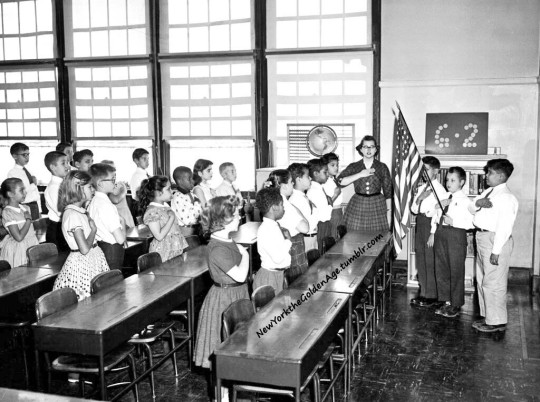
Students in Miss O'Hara's sixth grade class at P.S. 116 salute the American flag during the pledge of allegiance on October 11, 1957.
Photo: Associated Press
#vintage New York#1950s#pledge of allegiance#school#elementary school#students#pupils#flag#American flag#oaths#October 11#Oct. 11#11 October#11 Oct.
44 notes
·
View notes
Text

The Three Terrible Oaths:
Whatever happens; may it happen!
Whichever way it goes; may it go that way!
There is no purpose!"
Dorje Tröllö
79 notes
·
View notes
Text
Loki and Intolerance for His Teachings
I believed for 5 years that Loki wanted me to be with the man I was about to marry. I reconciled the things I wanted to with it to make it happen and make me feel content and stay there even when I was miserable. I listened to myself talk about it more often and Loki allowed that to continue because I felt as though I could not leave my situation. I was about to marry that man and had I not married him, it would be awful and uncomfortable for me. Not to mention I spent the better part of my adulthood with him.
It was easier to believe that Loki wanted the same things that I did no matter how wrong they were. He would allegedly want them for me because I knew what I wanted and He wouldn’t argue with that. I mean, He did – but it wasn’t blatant or loud or obvious. It was more of a gradual transition from one understanding of myself into another. It didn’t happen overnight.
You can read the rest of this post here:
#devotional polytheism#mysticism#lokean#loki#norse gods#norse paganism#heathenry#norse polytheism#deity work#deity worship#norse loki#paganblr#witchcraft#godspouse#god spouse#god marriage#oaths#dedication#devotional mysticism#loki worship#deity communication#deity#loki deity#polytheist#norse pantheon#norse mythology#norse heathen
10 notes
·
View notes
Text

#promises#commitment#loyalty#trust#honesty#oaths#vows#pledges#word#honor#duty#dedication#forever#love#relationships#hope#future#plans#dreams#goals
16 notes
·
View notes
Text
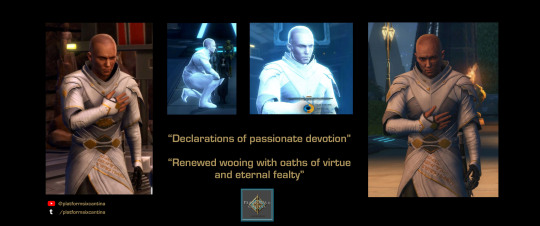
Oath of fealty: A feudal ritual by which a vassal or knight would swear eternal devotion and loyalty unto death to his Lord or Lady. Followed by a lifetime of mutual pining, longing gazes, heartfelt declarations, chivalric questing and self-sacrifice. Remind you of anyone? A certain former prince and ex-emperor who is currently on a quest to prove his worth to his Commander, perhaps??
At the Platform Six Cantina Podcast, we're obsessed with how Arcann's story draws on conventions from courtly love and chivalric romance. We can't wait to see his triumphant return in just a few more weeks! 7.3 HYPE!!!
#arcann#arcann romance#swtor#7.3 old wounds#courtly love#fealty#platformsixcantina#oaths#HYPE#star wars: the old republic#star wars the old republic
24 notes
·
View notes
Text

lil oaths doodle for @landwriter
#my art#fishfingersandscarves#the sandman#the sandman nerflix#dreamling#dream/hob#dream of the endless#dream (the sandman)#hob gadling#robert gadling#doodle#oaths#fic rec#landwriter
690 notes
·
View notes
Text
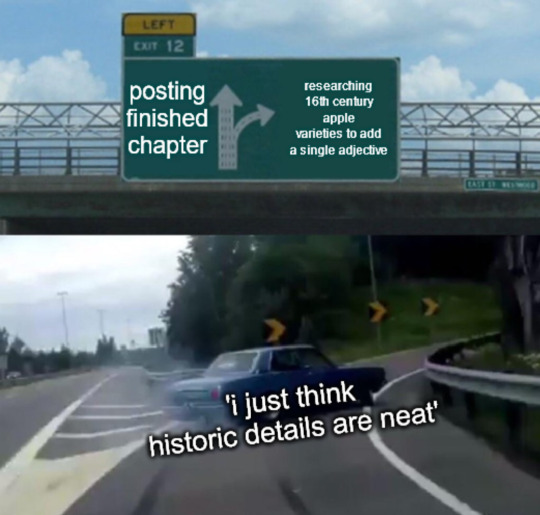
i am sorry i was so close-
#i've missed searching up all these little bits!! ahh!!!#oaths#honestly there's no excuse here#like#NONE#fic writing is just a vehicle for me to justify following up on every single 'i wonder...' that flickers thru my simple brain#am but a cat chasing a laser of curiosity on a wall and if the scratches i leave are legible it's icing on the cake#also frankly local heirloom & landrace fruit varieties are rad as fuck#i am never gonna resist the urge for a deep dive on that front#some of THE biggest nerds i've ever encountered are farmers market gardeners and growers#so in my meagre defense it is a very well-established Nerd Attractant#fanfic#about me#writing meta
311 notes
·
View notes
Text
So....pretty much everyone I know that has made an oath to Loki has done so in a godspousing context. But I want to know if people have oathed to him in any way that *isn't* that, and what that experience has been like. I get the feeling he's asking for a more concrete oath, but he's also very much aware of how the concept of godspousing makes my wife feel uneasy. And he's been very respectful of that. I would like a more "formal" commitment but not in a way that compromises my actual human marriage. (Which, again, he has been supportive and respectful of. And ultimately that oath to my wife has come first, before anything made to him.) Obviously this is something that will ultimately be worked out between Loki and I, but I don't have any tangible examples of this kind of oathing to him to know what it might look like. When it comes to oaths I very much want to look as much as I can before I leap, so to speak. I know I'll never know all the details before doing something, but seeing that it's at all possible would ease so much of my worries and anxieties around this.
#lokean#loki#heathen#heathenry#inclusive heathenry#norse loki#norse deities#oaths#deity relationships#deity work#deity worship#norse paganism#germanic paganism#pagan#paganism
6 notes
·
View notes
Text
new post on phone app: exploring the options
an adventure in lapselock, formats, and organizational tumblog infrastructure
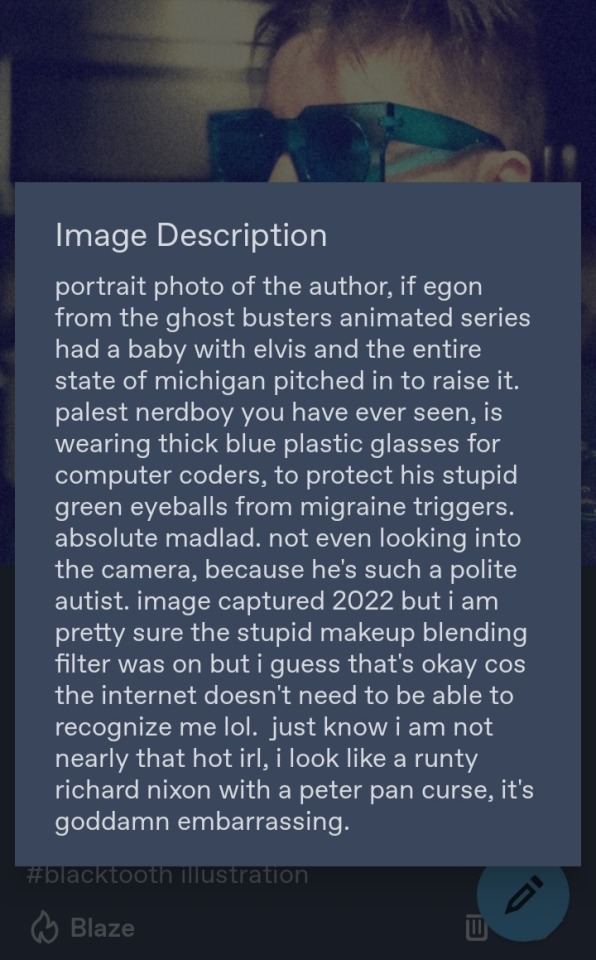
this is so much fun tho, you guys, come on. i always wanted to be able to do nerd sh*t for a living, or at least live long enough to find the freedom to consistently nerd.
pt. one: lapselock and alt txt and readmores, oh my!
hey momma welcome to the sixties ~ ♪
but instead of momma it's bubba and instead of sixties it's 20s and instead of a campy john waters film it's a blog circle getting organized by an idiot.
(i self-depreciate for the sake of HUMOR, to keep myself HUMBLE and uplift MY FRANS. it's not negative crosstalk so much as a wink and a nod to the ONLY (1) layer of irony i possess. i very damn well know i'm not an idiot, thanks, cos look at my taste in friends! YOU people LET ME feel like an idiot, for fun, because it's fun for me to not have to worry about keeping myself alive!! fffffaaaaahhhhck! i'm not an idiot, but god only watches over fools and artists, so, winkwonk elbownudge no artists here, sir, just us humble idiots.)
4 notes
·
View notes
Text

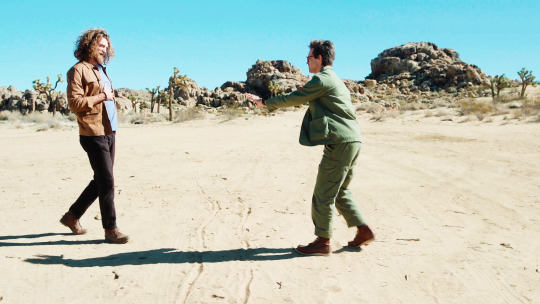




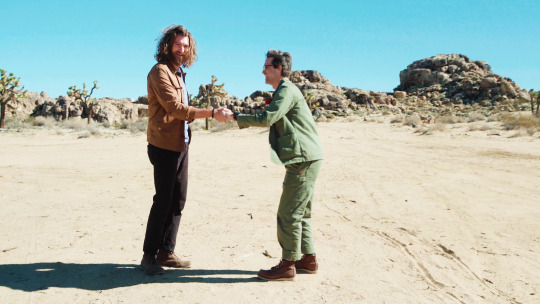
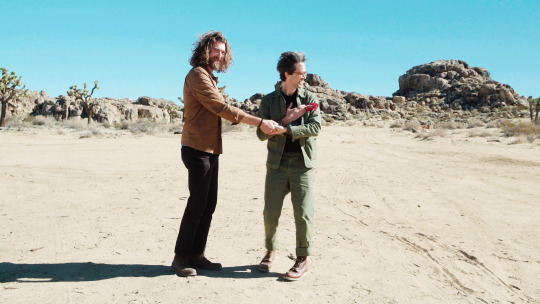
i'm gonna place my hand over my heart when i feel i'm there.
#and their hands didn't leave their hearts once they got close#🥺️#[staring at the lines in the sand and their shadows]#the parallels#escapism#beginnings#oaths#everything about this#men who like touching each other#literally and figuratively#.png
47 notes
·
View notes
Note
Hello! I have a rather silly question if that is alright :)
When I first got into worship and hellenic polytheism, I was quite young and didn’t know much and would often pray whatever came to mind but due to my health i have memory issues and don’t remember anything i said! (This was years ago). Because I came from Catholicism, Im afraid i may have said “i vow” (as a way of saying i promise) or such in my prayers though i do not remember. Though i know thats not oaths are typically structured, Im worried I may have made an accidental oath if thats even possible.
Is it possible to accidentally make an oath? and in your opinion would “I vow” count as such?
thank you!!
Hey, Nonny, thanks for the ask!
I feel like there is often a lot of fear around oaths, but honestly, there's nothing to be worried about. Usually, with oaths, it's a two-way street - you give something (devotion, offerings, words, etc.) in order to get something (luck, energy, success, etc.). That doesn't mean that all oaths work this way, but that's the most typical format I see. Even when that isn't the case, the deity still has to accept the oath, and if they don't accept, then that's that. Along with this, oaths are usually a more formal process and require a lot of thought, time, and energy. They aren't usually made on the spot, most of the time.
All that being said, I don't think you can accidentally make an oath. In my opinion, an oath requires at least some forethought and definitely intention. If you don't have the intention of making an oath, you won't make one. Plus, I don't think any deity out there would take advantage of a minor by holding them to something they didn't intend to do, you know?
While language such as "I vow" is very oath-esc, I don't personally believe you have anything to worry about. The gods are a lot more understanding than we often give them credit for. They aren't likely to be upset with you for something like this. At the very most, you may have broken a promise or some promises, but I highly doubt you made any oaths.
If you can, however, I recommend doing your own divination on the topic! I obviously cannot speak for the gods; this is just my personal opinion on oaths and such. I would ask if you've accidentally made any oaths and if those oaths are still being held. Honestly, though, I get the feeling that you don't have anything to actually be worried about.
Hope this helped! Have a nice day/night, and take good care of yourself! ☺️🧡
Also, this was a great question, Nonny! It wasn't silly at all! 🫂
48 notes
·
View notes
Photo

Do Not Take Oaths
But above all things, my brethren, swear not, neither by heaven, neither by the earth, neither by any other oath: but let your yea be yea; and your nay, nay; lest ye fall into condemnation.
— James 5:12 | King James Version (KJV)
The King James Version Bible is in the public domain.
Cross References: Matthew 5:34; James 1:16; James 1:19
#honesty#truth#oaths#James 5:12#The Epistle of James#New Testament#KJV#King James Version#Holy Bible
22 notes
·
View notes